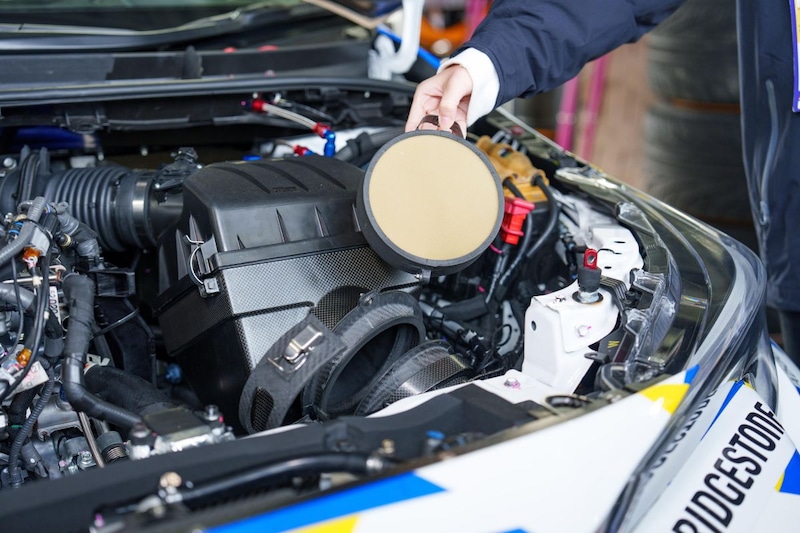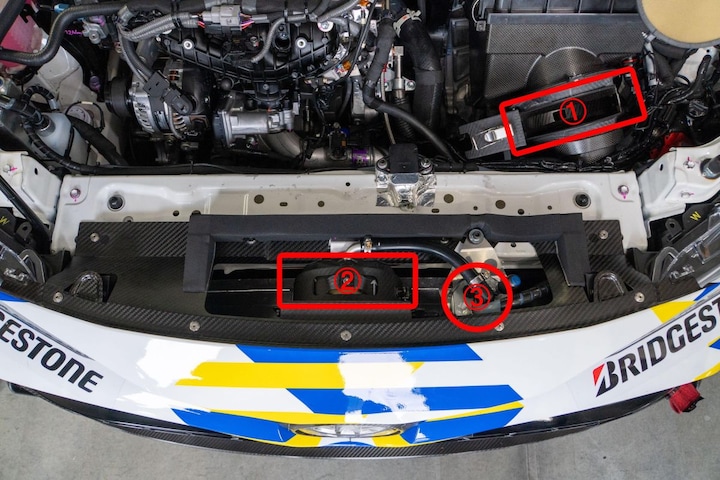Compensate for CO2 emissions while driving

Toyota is experimenting with filters that should reduce the net CO2 emissions of fuel cars. The cars use the filters to absorb CO2 from the air.
Is the combustion engine finished? Well, not if Toyota has its way. There is still a bright future for this, at least in countries where the infrastructure is not yet ready for large-scale electric driving. At the same time, it wants to show that the combustion engine can become a lot ‘cleaner’, for example by running it on hydrogen. Toyota is now also experimenting with technology that should further reduce the CO2 footprint of combustion engines.
Toyota has installed ‘CO2 filters’ in, among other things, a racing car, a Toyota GR Corolla with a fuel engine that runs on hydrogen. The filters, which capture CO2 from the air, consist of a conventional ceramic catalyst, which is coated with a CO2 absorbent sourced from Kawasaki. Naoaki Ito, lead officer for GR Vehicle Development, explains the main advantage over comparable but much larger industrial ‘CO2 capturers’: “Typically, CO2 capture facilities use fans that draw in air and heat to release the CO2. all of which takes energy. The key point of the Corolla’s system is that it uses the existing air intake and heat in the engine.”

“CO2 from the atmosphere is captured by filter 1 and separated as it moves to 2, after which it is dissolved in the recovery fluid at 3.”
It is just not very efficient, because with these filters the racing Corolla could only absorb 20 grams of CO2 in twenty laps around Fuji Speedway (a total of more than 90 km), or about 0.22 g/km. That doesn’t really make any progress, if you consider that cars with a combustion engine usually emit more than 100 grams of CO2 per km. Toyota says it is aware of this and wants to try to improve the reception capacity. Furthermore, you now have to replace the filter ‘at every pit stop’, so they also hope to find something about that. In short: this is certainly not the holy grail for combustion engines, but every little bit helps.
– Thanks for information from Autoweek.nl